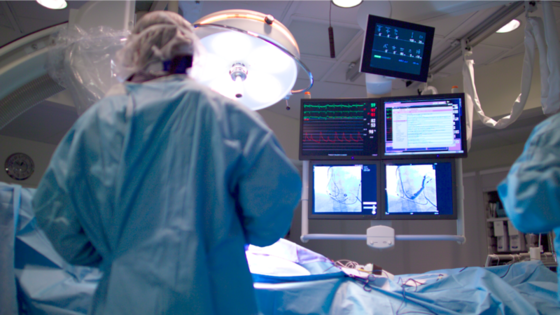One major challenge for physicians who perform PCI or EVT is to define and standardize these procedures themselves in detail, since it’s incumbent on them to select the most appropriate procedure and assembling devices that vary from patient to patient.
As stated in Part 1 of this series, the efficacy and safety of interventional procedures are not ‘products’ that belong to a company, but rather ‘intangible assets’ that cannot be separated from the experience and skills of the medical team, be that of physicians or other co-medical staff. As a result, the legal clarification of the definition of clinical trials on interventional procedures is important for cardiologists who are planning to conduct them.
The question, then, is what aspects should cardiologists focus on when planning this type of clinical trial?
We picked up on two easy-to-understand points.
1. Is the use of medical devices as defined in the protocol within the scope of approval?
As mentioned in Part 1, clinical trials on interventional procedures do not involve evaluation of the performance of the medical devices themselves. Therefore, when setting their research objectives, cardiologists will neither be able to prove nor disprove any effects caused by the medical devices used. In order to clarify this point, it’s necessary to always refer to the attached document of the medical devices used and ensure they are applied within the approved scope.
2. In cases where medical devices are used partially or for off-label purposes, does the medical device specify use for a single product?
According to Q1-26 of “Questions and Answers on the Enforcement of the Clinical Trial Act (Consolidated edition),”approved medical devices, it is stated that “if the purpose of the trial is not to prove the efficacy or safety of the medicines or medical devices used, it is acceptable to conclude that the trial does not fall under the category of specified clinical trial.1” Therefore, “unapproved” or “off-label” products are permitted in this type of trial.
However, if the contribution of said products to the interventional procedure is high, it may be judged as a “trial to substantially prove the efficacy or safety of the products.” This kind of trial may also fall under the category of ‘specified clinical trial.’
The eligibility for ‘specified clinical trial’ is judged by the Institutional Review Board (IRB) established in each hospital and the Certified Review Board (CRB) approved by the Ministry of Health, Labor and Welfare (MHLW). It is necessary to confirm the position of each of these boards before conducting clinical trials.
- Q & A regarding the enforcement of the Clinical Trials Act (consolidated version) (November 13, 2019, Ministry of Health, Labor and Welfare, Medical Affairs Bureau, Research and Development Promotion Division / Pharmaceutical and Consumer Health Bureau, Surveillance Guidance and Narcotics Control Division)
https://www.mhlw.go.jp/content/10800000/000566065.pdf
About the Author: Shuhei Odagiri (Clinical Study & Strategic Consulting)
After working as a clinical research associate and data manager at a global CRO, Mr. Odagiri moved into R&D at a Japanese company to specialize in the field of in vitro diagnostics. In 2021, he joined TCROSS Co., Ltd. as clinical research specialist and currently has more than 3 years of experience. He has a Masters of Pharmaceutical Sciences from Kanazawa University.




